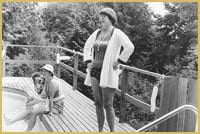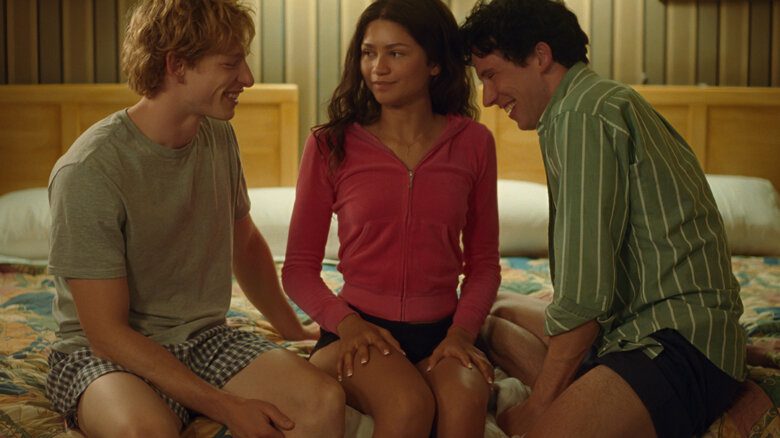The writer Jane Rule was inducted into the Order of Canada in 2007, which was the same year that she died.
It’s common for great radical minds to be recognized by the mainstream only once they reach old age and begin to appear less dangerous. What is rarer (extraordinary, in fact) is for a writer, having broken into the higher echelons of the literati, to turn repeatedly to smaller presses in order to broadcast her message.
With the 2008 publication of Loving the Difficult, a collection of personal essays published by Hedgerow, Rule’s final words come to us courtesy of an independent, Vancouver Island business. Rule, too, was an island dweller, however connected to the continent.
Of the 38 essays, only eight were previously published. The rest, spanning her final two decades of writing, now serve as snapshots from various corners of her life. Seven of the essays are undated (pages in a shoebox under the bed?).
The editing of this collection, by Hedgerow’s Joan Coldwell, is light and oftentimes absent. Material repeats and syntax occasionally feels unpolished, as though we were reading a first draft.
“I let it stand,” says Coldwell. “If it’s not perfect, people will know that Jane wasn’t perfect. It’s a reminder of how difficult writing was for her.” (Saddled with dyslexia and arthritis, the act itself was cumbersome; and, stylistically, Rule worked like a bricklayer.)
I wonder whether some of these essays are quite in the shape that she would have wanted; or did she expect to be given more time for fine-tuning?
The question of time’s dogged march, naturally, is everywhere in this book. In one piece, an ornery doctor assures her that “Death is not an emergency.” In another, the dried-up swimming pool in her backyard, where Rule famously taught the children of Galiano Island to swim, only reminds her of “an open grave.” (That piece proved to be the last of her writings.)
And, then there’s the essay called “Grief,” which may become a signature of hers; Rule writes simply and with intimacy about the death of her partner of 44 years, Helen Sonthoff. It’s a small piece that deserves a lot of room. From it:
“It was a grief that felt almost a betrayal of the deep joy in my life. And yet, at the hardest and loneliest hours, I did know that it was a small price for what I might have, as a self-protective youngster, avoided. ‘The last gift you gave her,’ a friend wrote, ‘was to outlive her.'”
The same year she wrote that essay, she wrote another called “Legally Single.” It’s about the census, about being counted. She learns that in the 2001 Canadian iteration she will have the opportunity to declare that she’s in a same-sex relationship.
“It’s too late for that for me. Helen died last January, and I don’t suppose there’s a place on the form to be accurate about what sort of widow I am.”
Loving the Difficult, even if it is a little rough hewn, is still awfully accurate in its way. The later essays are, by and large, more economical. Not because there was less to say but, rather, because patience for extraneous words appears to have worn thin.
Or maybe because she sensed that final words need to get to the point.
When Rule died I wanted to talk about her a lot. Mostly, though, I was met with blank stares from other 20-somethings. “Oh,” said one young friend, “she’s like a second-wave feminist or something?” The idea being, That has nothing to do with my post-gay life.
Maybe there is something dated about Jane Rule, after all. Who was this quiet — and sometimes not-so-quiet — woman who tucked herself away on an island? And why would she matter to a world that can barely sustain queer bookstores anyway?
Loving the Difficult is unassuming but potent as a message in a bottle. Not just because she’s gone now, but because, in life, she was from somewhere else. I don’t mean Galiano Island, and I don’t mean the 1970s. Jane Rule (like Armistead Maupin) was writing dispatches from a social frontier. And that is far away from where most people live.
So: To whom is the message-in-a-bottle addressed? Loving the Difficult is not dedicated to any one member of some Gay Liberation guard. On the first page, in big print (and with a winking reference to her 1970 novel, This Is Not For You), it just says: For You.


 Why you can trust Xtra
Why you can trust Xtra


